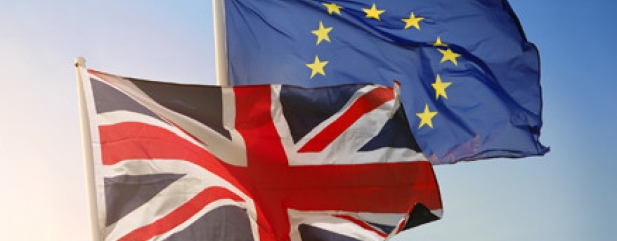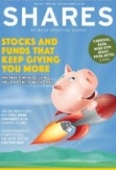Archived article
Please note that tax, investment, pension and ISA rules can change and the information and any views contained in this article may now be inaccurate.
What Brexit means for UK financial assets – two years after the vote

It is two years since the British public had its say in the EU referendum of June 2016 and while many voters and Leavers are unlikely to be in the least bit concerned, it can be argued that financial markets continue to approach March 2019 with a degree
of trepidation.
This is not to say the markets are right to be cautious about what Brexit may bring to the UK and EU economies – this column is going to steer clear of the politics and will like to stress now that the following comments are based purely on analysis of the data and nothing more.
But three clear trends suggest that investors would at the very least like greater clarity on what sort of deal the UK will get – or, if there is no deal at all, what that might mean.
UK STOCKS LAG THE WORLD
At first glance, a 30% total return from the FTSE All-Share (including dividend reinvestment) since the EU vote two years ago does not look bad at all. However, anyone who fled the UK’s financial markets as soon as the vote result became known in the early hours of 24 June would have been quite justified in doing so, as UK equities have markedly underperformed their global peers since 23 June 2016.
It is possible that investors may wait to see what deal is struck – if there is one at all – before committing more firmly to the UK on an asset allocation basis, although it is possible to argue that such wider reticence could be creating a valuation opportunity, especially as economists continue to argue the pound looks cheap on a purchasing power parity (PPP) basis.
STERLING’S SLIDE
With the Bank of England seeking to influence borrowing costs – and thus bond yields – by cutting interest rates to a record low of 0.25% in August 2016 and reintroducing quantitative easing (QE) – financial markets have not been able to express their hopes and fears through the usual channel of Government bonds and the interest rate they demand in return for lending money to the UK.
Instead, the pound has become the main lightning conductor for market sentiment and in general a ‘hard’ Brexit or ‘no deal’ have been greeted with dismay by sterling and the prospect of a ‘soft’ Brexit has tended to receive a warmer welcome from the currency markets, although Bank of England reticence to increase interest rates has not helped here, either.
The pound is still nearly 11% lower than where it was before the EU referendum, according to the Bank of England’s own trade-weighted basket.
This could simply mean the pound is cheap and that British assets are cheap as a result, even if some investors seem reluctant to commit hard cash right now.
SECTOR AND STOCK PERFORMANCE
At least that weak pound has helped provide some support to the UK stock market, even if the FTSE All-Share has lagged its international peers.
Three clear trends can be seen within UK equities since 23 June 2016, even if it would be wrong to attribute every development in the benchmark indices over the past two years to Brexit.
- Overseas earners and exporters have done well, helped by the pound’s decline but also hopes for a globally synchronised economic recovery. This helps to explain the strong performance of the mining, industrial engineering, electronic/electrical equipment and forestry/paper sectors, among others.
- Weakness in sterling has helped to draw predators to the UK, who have sought to snap up British assets on the cheap. Successful – or even failed – bids from overseas parties have helped to fuel the performance of sectors such as technology hardware, where Softbank of Japan swooped for ARM within a month of the referendum vote.
- Anyone seeking safety in defensive sectors would have struggled, underperforming the wider UK stock market, which has itself done poorly on the world stage.
Not everything can be laid at the door of Brexit. The EU vote has surely had little bearing on the sale of orcs, trolls and fantasy gaming products at Games Workshop (GAW), a key component of the leisure goods sector.
Food and drug retailers have confounded the bears, despite the pressure put on the cost of imported products owing to the weaker pound, thanks to cost-cutting programmes, industry consolidation, improved operational performance and the rise (and rise) of Ocado (OCDO).
But the ongoing debate over what Brexit may or may not mean once it comes into force after March 2019 (or December 2020) could continue to help shape sentiment towards British financial assets for some time to come.
By Russ Mould, direct
Important information:
These articles are provided by Shares magazine which is published by AJ Bell Media, a part of AJ Bell. Shares is not written by AJ Bell.
Shares is provided for your general information and use and is not a personal recommendation to invest. It is not intended to be relied upon by you in making or not making any investment decisions. The investments referred to in these articles will not be suitable for all investors. If in doubt please seek appropriate independent financial advice.
Investors acting on the information in these articles do so at their own risk and AJ Bell Media and its staff do not accept liability for losses suffered by investors as a result of their investment decisions.
Issue contents
Big News
- Housebuilding review is a mixed bag for the sector
- Could post-Brexit M&A rules deter foreign investment?
- What could more liberal cannabis laws mean for investors?
- Mind Gym could be the next fast growth company to take the stock market by storm
- Are investors underestimating Costa’s growth prospects in China?
 magazine
magazine











